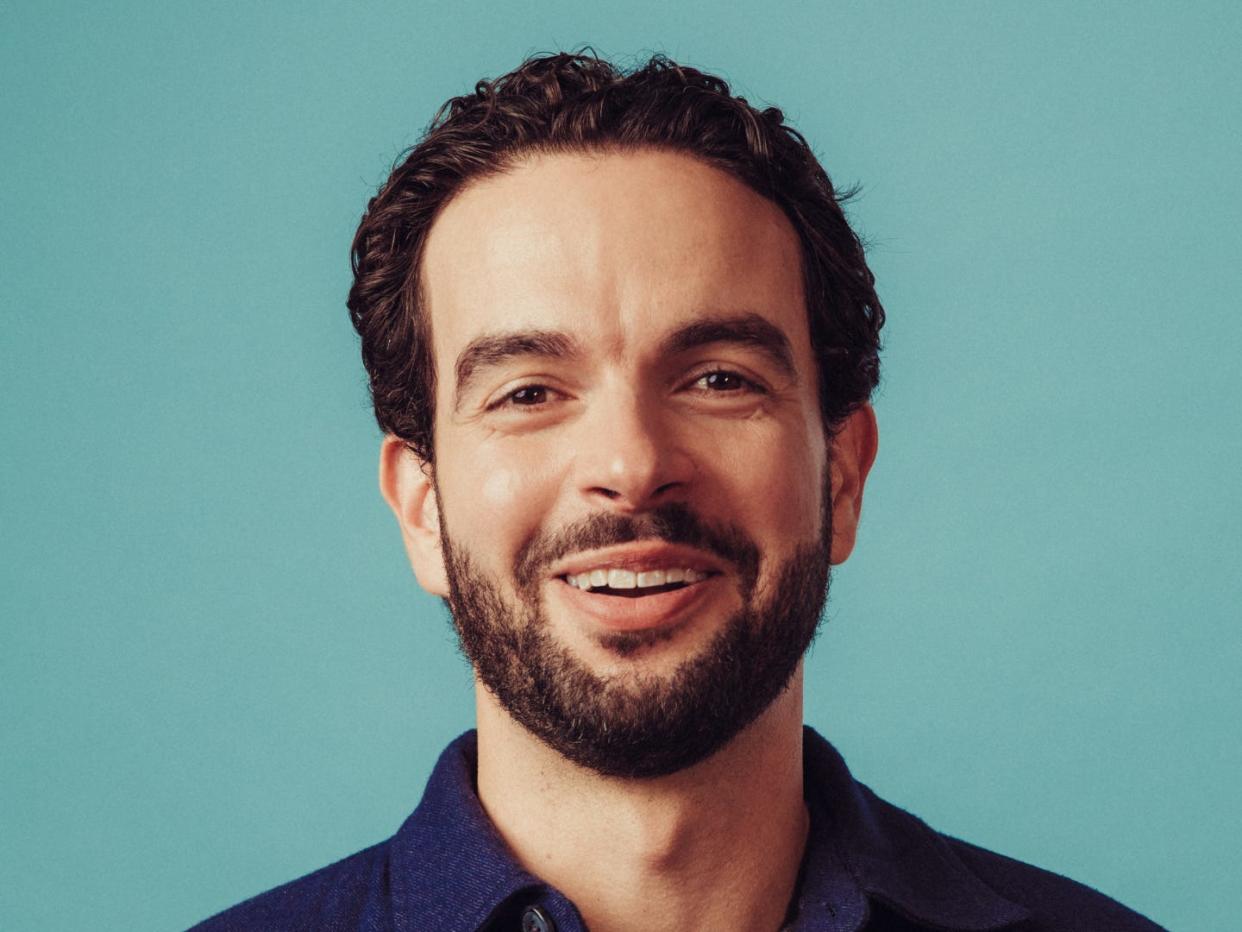Making friends in my 30s is hard. I seek out casual interactions with strangers to feel less isolated.

Chris Duffy, a comedian and podcast host, says caregiving often takes away his social time.
He started to take more time for interactions with casual acquaintances.
Sometimes that leads to friendship, but even when it doesn't it's meaningful, he says.
This as-told-to essay is based on a conversation with Chris Duffy, author of "Let's Hang Out: Making (and Keeping) Friends, Acquaintances, and Other Nonromantic Relationships." It has been edited for length and clarity.
In my early 30s, I was the caregiver for my wife, who was dealing with chronic pain and other health issues. It was all-encompassing and there wasn't a lot of time to have outside social interactions. I really felt the loss of those connections.
Now, at 37, I'm parenting for the first time, and my son is 6 months old. It's a similar feeling: if I don't reach out, there just aren't many people around. It's just not possible to have a social life in the same easy, unplanned way I could in college or during my 20s.
Yet, I've realized I can get some social fulfillment from casual interactions. Sometimes when I'm taking my son for a walk I make meaningful eye contact with another parent. We don't even have to exchange words but we're acknowledging that we're both here, walking at 6:30 a.m., in the trenches with the baby.
That simple exchange makes me feel less isolated. Here's how to foster them in your life.
Take the pressure off
Friends are great, but making new friends creates loads of pressure. Luckily, you don't need to see your friends every day to reap the benefits of social interactions. Research shows that even casual acquaintances can benefit our health and happiness.
So, chat with the cashier, say hi to people on your walks, and ask how your barista is doing. Maybe you open the door to a deeper relationship, but even if you don't, you'll feel better.
Stop assuming no one wants to talk to you
The biggest barrier to connection is almost always your mental idea that other people don't want to be connected. But research shows that's just not true. There have been studies of people on buses where one passenger is challenged to make small talk with the person they sit next to. When researchers ask about it, both people feel so much better.
The vast majority of interactions are going to be positive, so take a risk on starting one. Don't be afraid to take that first step and just say hi. It doesn't have to be a high-stakes thing, and just breaking the ice can lead to a much bigger reward.
Just show up
Get into your community and show up at the same places regularly, and you'll start to see familiar faces. I'm not much of a swimmer, but I started going to my community pool. Before long, I'd met some of my best friends. We connected because we had this place in common. Maybe for you, it's the library, a coffee shop, or the park. Just get out there!
You don't have to be vulnerable
Our culture really pushes the idea that vulnerability is the most important thing for building connections. I think time is much more essential. Over time, you're going to connect with people and naturally become vulnerable unless you're really fighting it. So no, you don't have to pour your heart out to someone you just met — instead, just ask how their day is going.
Join clubs or groups
Years ago, it was so common to be part of a religious community or club. These days, not so much, but these community groups are still a great way to meet others. They're sort of forced social gatherings where you're sure to see the same people again and again.
As a comedian, I love weird things, so I joined the Los Angeles Breakfast Club. We gather every Wednesday at 7 a.m. to eat breakfast and sing songs about ham and eggs. It's not for everyone, but it's been great for me.
Don't underestimate the internet
There's an idea that you can't have a real connection through the internet, but I was surprised by how false that is. The key is to find your own weird little corner of the internet where you can form connections. I even heard about a group of people who meet in the comments section for the New York Times Metro Diary each week. Set aside the culture of debating and just try to learn about others.
Making friends as an adult isn't easy, but the more you can approach it with a spirit of play and generosity, the more meaningful connections you'll find.
Read the original article on Business Insider


